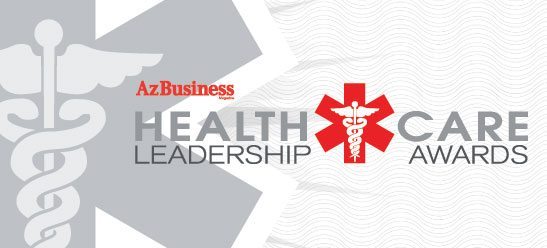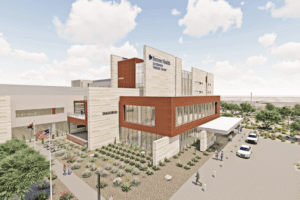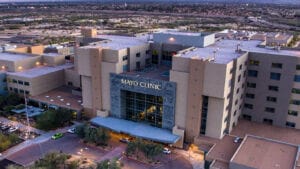Legislative Impact Award
Honoree: Roy Ryals, Executive Director, Southwest Ambulance
Roy Ryals
Executive Director
Southwest Ambulance
Virtually every pre-hospital care related rule at the Arizona Department of Health Services, and every piece of related state legislation approved in the past 30 years, has something in common — Roy Ryals helped to write it.

Ryals, executive director for the Southwest region of Southwest Ambulance and Rural/Metro, is considered the pre-hospital regulatory expert and reference point. His knowledge and memory of the history behind decisions, and the far-reaching effects of every word that’s written, has earned him the respect of both the industry and state regulators.
In effect, every patient in Arizona who has used an ambulance over the past 30 years has benefited from Ryals’ intellect and participation in the legislative and regulatory process, whether he’s at the state Capitol, in a board room, or in the back of an ambulance. Ryals has been appointed by four Arizona governors to the Emergency Medical Services Council and was named by three directors of Department of Health Services to the State Trauma Advisory Board.
He is president of the Arizona Ambulance Association and a registered lobbyist with the state. At Southwest Ambulance and Rural/Metro, Ryals is responsible for all contracts, regulatory issues and legislative oversight. He indirectly oversees all field employees through his involvement in medical protocols and regulation for field crews of both companies. He also manages Southwest’s administrative leadership team and legislative consultants. Ryals began his career at Southwest Ambulance in 1987 as the executive director over Arizona medical transport.
Two years later, he was promoted to national director of EMS. In 1991, he became the regional chief operating officer overseeing system integration and regulatory compliance.
[stextbox id=”grey” image=”www.swambulance.com”]www.swambulance.com[/stextbox]
Lifetime Achievement Award
Honoree: Joseph Rodgers, PH.D.
Joseph Rodgers, PH.D., Founder and Senior Scientist
Banner Sun Health Research Institute
Joseph Rogers, Ph.D., the motivating force behind Banner Sun Health Research Institute in Sun City, has devoted three decades to finding the cause of and cure for Alzheimer’s disease. But the first work from researchers at the institute did not originate in multimillion-dollar labs or in high-tech facilities; they began their research at a card table with folding chairs.

The institute, a tribute to Rogers’ tireless efforts in the field of Alzheimer’s research, has created opportunities for intensive research into other age-related illnesses, including Parkinson’s disease and arthritis. The discoveries already made at the institute, and those yet to come, promise to have significant benefits for millions around the world. Rogers, the institute’s founder and senior scientist, was recruited in 1986 to develop the research facility.
His qualifications for this breakthrough role include a doctorate from the University of California, San Diego; a postdoctoral fellowship and service as a staff scientist at the Salk Institute; and immediately prior to his arrival in Arizona, he was at the University of Massachusetts Medical School, serving as a principal investigator within the New England Alzheimer’s Disease Center at Harvard University. Rogers made the revolutionary discovery of the damage that inflammation causes to the Alzheimer’s-affected brain. Initially, other scientists scoffed because conventional wisdom precluded the inflammatory process from entering the brain, but Rogers’ discovery changed Alzheimer’s research.
Under Rogers’ leadership, the institute has attracted internationally recognized faculty and scientists, who have made their own compelling discoveries, including a direct linkage between Alzheimer’s and high cholesterol, and a compound of drugs that has promise for significant benefit to those with rheumatoid arthritis. Another key to the institute’s growth is its full-tissue repository, which Rogers initially developed as a brain bank soon after founding the institute.
[stextbox id=”grey” image=”www.bannerhealth.com”]www.bannerhealth.com[/stextbox]




